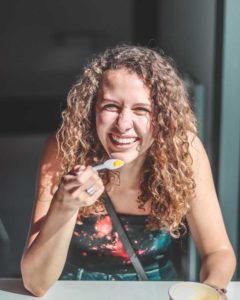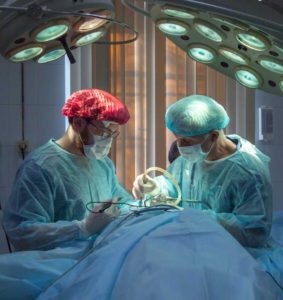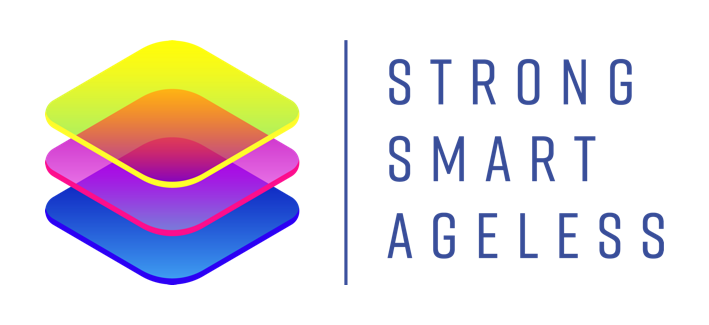Ten Energizers
Introduction
Your body, health, mood, energy and ultimately your..."age", are a complex interconnected marvel. Our mission is to simplify, demystify and connect the dots of the 10 major elements of your health and longevity.
The brief summaries below outline the importance of each element. Not every one is for everyone, but identifying which apply to you and adopting a few simple changes, can have dramatic improvements to your health.
We can teach you how the 10 all interrelate, or we can simply distill it into "where to start and move onto next".
If you haven't yet, Contact Us for our free e-book "10 Energizers - Ten Elements of Longevity That Define Your Age" and complete our questionnaire to discover the most valuable improvements you can make today.
Why would you? Vibrant, youthful energy, enthusiasm and health.
Skip to Section
Brain

Our brain is 2% of our bodyweight and consumes 20% of our oxygen and calories.
Our brain at 2 percent bodyweight consumes 20 percent of our oxygen and 20 percent of our calories.
To protect our brain today, we need key strategies that were not required previously.
Exacerbated by declining hormones, brain function often declines around menopause and andropause.
Exercise, good diet, sleep and stress reduction, are very important to address, but these basics are no longer enough for you to maintain peak brain function in later years.
This is due to the brain’s complexity and fragility. It was never designed for chemicals and heavy metals to pass through the blood-brain barrier as they presently do.
In addition, our brains are assaulted by EMF from wifi, cell-phone towers, and the dirty electricity in our homes even as we sleep.
It is confronting to experience early symptoms of cognitive decline.
When the brain first begins slowing, around our fifties, it is a smart move to optimize our hormones levels. This will significantly improve memory, concentration and mood.
There are numerous websites devoted exclusively to cognitive nutrition and neuro-hacking the brain if you’re seriously inclined to turbo-charge yours.
Once you have improved all the foundational brain supports you can elect to introduce cutting-edge brain nutrients and nootropics.
These are powerful enhancers of neurotransmitter activity.
There is no shortage of experts or information to help us enjoy increased productivity, creativity and mental functioning through our later decades.
We recommend the book, “The End of Alzheimer’s” by Dr. Dale Bredesen
Hormones

Hormones interact in many ways to contribute to your bodies wellbeing and function
Is there any point supplementing hormones when our hormone-producing glands slow down with age? This depends very much upon our beliefs, attitudes and understanding of the subject. It also depends what we want from life, or still hope to give.
Prescribed wisely and monitored carefully by a skilled practitioner, bio-identical hormone replacement (BHRT) can give back what we’ve lost in terms of energy, mood, motivation, creativity and mental acuity. Correctly balanced, BHRT can give back much of what the ageing process has diminished. In most instances it can provide a platform to add decades of productive creativity, youthful energy and enthusiasm. This often translates into giving back to others out of years of wisdom and experience that might otherwise be wasted.
Hormone therapy can be an emotionally charged topic we hesitate to mention. Those who prefer to ‘age gracefully’ may react poorly to resorting to something like hormone therapy. Others, seeking the fountain of youth at any cost, jump in boots and all.
Exercise

Exercising in a way you will naturally adopt it is a great way to fit it in your lifestyle
Move often! Sitting is the new smoking. When time and energy are in short supply, exercise is the first to go. If we understood its benefits as a powerful anti-ageing tool, we’d re-think skipping exercise.
Increasing our muscle, and especially our leg strength, communicates to other cells to maintain our metabolism. This includes insulin and sugar control along with vital brain function.
Walking speed in older people is a simple predictor of how long they have to live. That’s scary. Walk faster!
So walk, interval jog, run, squat, push and pull things because these are imprinted, primal movements which our bodies need in order to thrive.
While our brain is only a mere two percent of our bodyweight, it receives up to 20 percent of blood flow to supply the necessary oxygen and nutrients.
Exercise is the ideal way to enhance blood flow.
Intelligent exercise means knowing what type of exercise to do and when.
This will vary with our age, energy, sleep, and stress levels.
Too much high intensity exercise of any type is just one more stress for our body.
As the years pass, don’t just continue walking, jogging or cycling.
As we age, beware of excessive aerobic exercise.
Lift weights or heavy objects twice per week.
Longevity research shows we can lose up to 8 percent of our muscle mass per decade after age forty.
Older people, sadly, fall over a lot.
We need to focus more on strength training to minimise this muscle loss
Nutrition
Food has become unnecessarily complicated and polarised: raw, vegan, paleo, keto, to name only a few.
The word ‘diet’ implies calorie restriction and discipline, while ‘nutrition’ suggests science and complexity.
Once you chose a diet, others may treat you more like you’ve joined a religion or political party than a simple path to health and wellbeing.
Psychologically, can we move beyond seeing food as merely calories to count or a belief system to follow?
Some diets demonise one food group, such as carbohydrates, fats or protein.
This is what many new fad diets have tended to do over the years. Each has reacted to the imbalances of its predecessors.
Food provides energy and nourishment as well as social interaction.
But food is also information - it can affect our genetic expression and brain function, not just our energy and appetite
Food is powerful!
Gut Microbiome
If we laid out the thin membrane lining our intestines it would cover two tennis courts.
It is through this fine complex membrane that our blood is supplied with vital nutrients while wastes and large molecules are filtered out as waste and eliminated.
An increasing number of people are suffering from perforations, or small holes in this membrane. These allow larger, undigested proteins and molecules to enter directly into the bloodstream.
As a result, we see the rise of allergies, auto-immune diseases, IBS and a range of other ‘new’ and complex health disorders appearing on the horizon.
The causes are never simple to discern – even by the experts, and even given the many breakthroughs in diagnostic methods.
Our gut has been called the ‘second brain’ because it communicates directly with the brain. Actually it communicates with every other organ system.
Our gut microbiome produces 70 percent of our body’s serotonin and provides about an equal proportion of our immune system.
The bacteria in our gut microbiome comprises about 99 percent of the total DNA in our body according to Dr David Perlmutter. He says, “There's this beautiful dance that happens between the gut bacteria and your own DNA.
The gut bacteria actually influence the expression of our 23,000 genes.”
So, nourishing the gut microbiome is essential for good health.
Muscle-Fat Ratio
Muscle provides the furnace in which our body burns fuel. More muscle generally equals more energy and more strength, especially as we get older.
Some fat is needed to cushion and protect vital organs. It also provides stores available to convert to energy when food is scarce.
The problem arises because food is rarely in short supply - yet our fat reserves are generous.
There are numerous reasons muscle to fat ratios are tilted in the wrong direction.
Many of these are cultural and lifestyle related.
Processed junk foods, cheap refined oils with added sugars, addictive flavour enhancers, and foods lacking nutrients all cause our body and brain to send hunger signals to keep eating… and eating.
These, in turn, cause malfunctioning of major digestive systems leading to diabetes, leaky gut, hormone imbalances, weak bones, disturbances to brain chemistry, mood and sleep.
Even more challenging to control is the continual chemical and toxic overload both within and outside our bodies.
We know weight loss is difficult and becomes more difficult, with age.
So if you’re carrying a few extra pounds, be reassured, there are steps you can take to reverse the trend, if you feel up to the challenge.
Supplements
Why take supplements? Isn’t a healthy diet enough?
Maybe, but only if you always eat a variety of foods, know your genetics, monitor your exercise and stress levels, and also have good digestion... then you may not need supplements.
You may be one of the lucky 10 percent.
Ninety percent of the American population do not even reach standard guidelines of 5 servings of vegetables and 2 servings of fruit per day.
Selective nutritional supplementation is a wise anti-aging option for anyone looking to optimize health and longevity.
Our foods contain reduced amounts of the nutrients they did just 40 years ago. That includes organic foods as well.
The increased number of chemicals we are exposed to places a further burden on our elimination systems.
Our detoxing pathways require a plentiful supply of nutrients, including vitamins, minerals, herbs and micronutrients to perform their job.
The RDAs (Recommended Daily Allowances) are a poor indication of our true nutritional requirements. They simply indicate how much of a given nutrient we need to keep from getting ill rather than staying optimally well… hmmm.
And they were established decades ago before many added stressors came on the scene.
Nowadays, in many of us, heavy metals compete for receptor sites on our cells upsetting the delicate balance of many minerals.
Most of us have increased need of magnesium, B vitamins and vitamins D, to name only a few.
Most people currently struggle with hidden nutritional deficiencies.
These manifest as low energy, poor concentration, variable moods, poor sleep and an inability to lose weight.
Detox

Toxicity in the body manifests in many ways
When we think detox we may think of green kale smoothies, lots of salads and possibly giving up alcohol for a week or two. Those with the funds may spoil themselves at a health and meditation retreat for 5 days to detox mind and body.
But what actually is a detox? And what are we needing to detox?
For many people it simply means avoiding fast foods and eating freshly prepared meals, perhaps with some added fresh vegetable juices and a few ‘detox’ liver supplements.
For those where these are already a part of their lifestyle, a detox might mean going organic, 100% raw and adding infrared saunas.
Still others might include supplements to help mobilize and eliminate any toxic heavy metals.
An ‘ultra’ detox could involve monitoring EMF and dirty electricity in the home and workplace and then insulating the home and/or body against these as well as is practicable.
Start simply, but it is important to understand the twenty-first century provides many stressors to our health.
One overlooked area that also needs regular detoxing is our thinking.
How often each day do we evaluate our negative thoughts, attitudes, beliefs and behaviour, in order to change.
Perhaps this is where our detox should begin.
Sleep
Much talked about and much misunderstood, sleep is where our day begins, not ends, as we get older.
For young parents sleep suddenly becomes a precious commodity. During these rich but challenging years, we collapse into bed hoping to recover.
In later years, with declining hormone levels sleep may still elude us – but for different reasons.
Many begin the day not refreshed and recharged by something as simple as a good, deep sleep.
Why is this?
Quality sleep depends upon many factors. It is impacted by stress, lack of exercise, inadequate nutrition, hormonal and neurotransmitter imbalances along with anatomical changes in the tissues of the throat and jaw.
Other obvious environmental influences play a role such as cell phones beside our head, blue lights on clocks, inadequate light blocking curtains, traffic noises and watching any screens right up to sleep time.
Simple sleep hygiene habits are an obvious place to start.
Once you have addressed the sleep essentials each night, you are equipped to go further and fully optimize your sleep.
Remember, sleep is the beginning of our day – not the end of it.
Mindfulness
Regardless of what’s going on in our lives, it’s our perspective that matters most.
Do we view life as a glass-half-full or a glass-half-empty?
Do we view life from the centre of the field, from the front row in the stadium, or do we try to look from a higher, more integrative perspective, way up in the bleaches… or even beyond?
It feels hard to look at things objectively when we’re at the centre of the drama.
Yet to maintain a healthy equilibrium, in our fast-paced lives, it helps if we can move, even a little bit, beyond emotional reactions into a higher perspective where we can accept life with all its challenges.
Finding time to slow down and increase our awareness takes determination.
But the rewards are worth it.
Simply deciding to practice gratitude and forgiveness toward ourselves and others is a great place to start.
Most of the mistakes we make are really only due to ignorance. We don’t set out to ruin our marriage and destroy friendships.
Most of us do our utmost to live good lives as best we can.
When things go awry we are often the most bewildered.
It sometimes appears as if somewhere along the way emotional landmines were put inside us that can be triggered by the most unexpected provocations.
It’s easy to blame others but not productive long-term.
When we become willing to forgive the imperfections in ourselves and others, peace and rest begin.
Our ‘enemies’ are usually as bewildered about their landmines as we are about ours.
It’s surprising how awareness increases with acceptance, forgiveness and gratitude.

